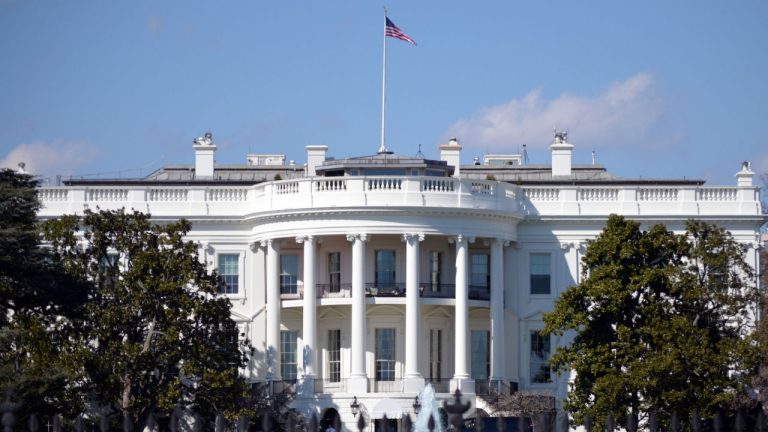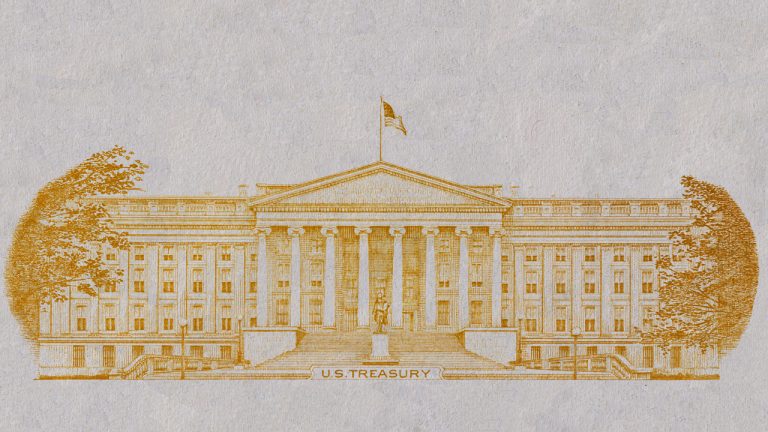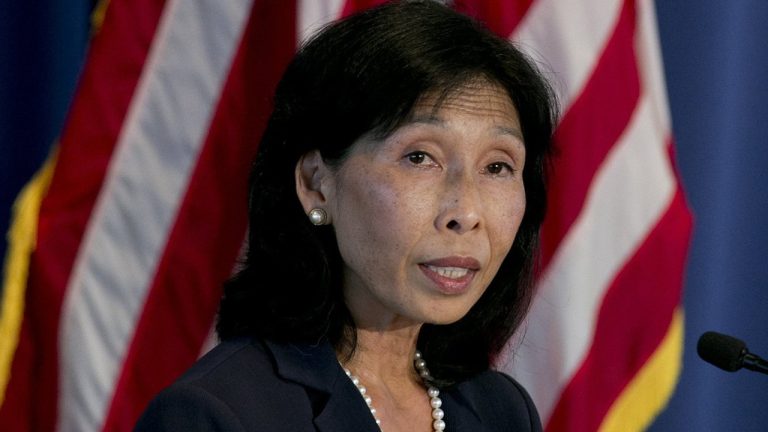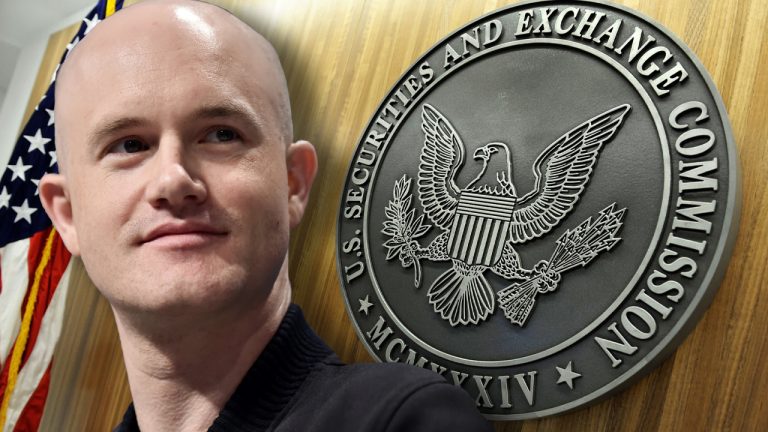
According to CryptoQuant, the current Bitcoin network difficulty is 88.4 trillion — down from the 92 trillion recorded on Sept. 20, 2024.
Maximizing Bitcoin (BTC) decentralization throughout the entirety of the stack is a matter of national security, Rajiv Khemani, co-founder and CEO of mining chip manufacturer Auradine, told Cointelegraph.
The CEO explained that third-party firmware — which updates and changes over time — could theoretically be used to compromise the energy grid or launch a 51% attack on the Bitcoin network.
Auradine’s CEO outlined a potential situation where malicious code embedded within this firmware could shut down mining operations within a certain geography. This could cause a drop in hashrate and network difficulty, making a 51% attack easier to execute.
 A Nigerian information technology agency is considering plans to develop a domestic blockchain to enhance national security and protect citizens’ data. A proponent of a locally developed blockchain argues that such a protocol would likely ensure compliance with Nigerian laws and allow the country greater control over its data. Domestic Blockchain Seen as Boosting Government […]
A Nigerian information technology agency is considering plans to develop a domestic blockchain to enhance national security and protect citizens’ data. A proponent of a locally developed blockchain argues that such a protocol would likely ensure compliance with Nigerian laws and allow the country greater control over its data. Domestic Blockchain Seen as Boosting Government […] President Joe Biden has issued an order that blocks Mineone Partners Ltd., a Chinese-backed cryptocurrency mining company, from owning land near Wyoming’s Francis E. Warren Air Force Base, which is a strategic missile base. This measure requires the divestment of land used for crypto mining and the removal of surveillance-capable equipment, citing national security risks. […]
President Joe Biden has issued an order that blocks Mineone Partners Ltd., a Chinese-backed cryptocurrency mining company, from owning land near Wyoming’s Francis E. Warren Air Force Base, which is a strategic missile base. This measure requires the divestment of land used for crypto mining and the removal of surveillance-capable equipment, citing national security risks. […] International analysts have called out the supposed use of the national security policy of the U.S. as a tool to justify the establishment of blockades and economic sanctions against countries like China and Russia. While U.S. Treasury Secretary Janet Yellen has recognized that a decoupling of the economies of the U.S. and China would be […]
International analysts have called out the supposed use of the national security policy of the U.S. as a tool to justify the establishment of blockades and economic sanctions against countries like China and Russia. While U.S. Treasury Secretary Janet Yellen has recognized that a decoupling of the economies of the U.S. and China would be […] The U.S. Treasury has released a 42-page report assessing the risks of decentralized finance (defi). The report states that specific nation-state adversaries, cybercriminals, ransomware attackers, thieves, and scammers are using defi to “transfer and launder their illicit proceeds.” The Treasury’s report warns that defi could threaten national security and calls for policymakers to increase oversight. […]
The U.S. Treasury has released a 42-page report assessing the risks of decentralized finance (defi). The report states that specific nation-state adversaries, cybercriminals, ransomware attackers, thieves, and scammers are using defi to “transfer and launder their illicit proceeds.” The Treasury’s report warns that defi could threaten national security and calls for policymakers to increase oversight. […] Cryptocurrency and technology proponents have recently been discussing a new bipartisan bill called the “Restricting the Emergence of Security Threats that Risk Information and Communications Technology (RESTRICT)” Act. In addition to targeting firms such as Kaspersky, Huawei, and Tiktok, opponents of the bill believe one of its provisions will punish ordinary Americans for leveraging a […]
Cryptocurrency and technology proponents have recently been discussing a new bipartisan bill called the “Restricting the Emergence of Security Threats that Risk Information and Communications Technology (RESTRICT)” Act. In addition to targeting firms such as Kaspersky, Huawei, and Tiktok, opponents of the bill believe one of its provisions will punish ordinary Americans for leveraging a […] On March 1, 2023, Nellie Liang, undersecretary for domestic finance at the U.S. Treasury, delivered a speech to the Atlantic Council in Washington concerning the subject of central bank digital currencies (CBDCs). Liang detailed during her speech that a CBDC is one of several options for “upgrading the legacy capabilities of central bank money,” and […]
On March 1, 2023, Nellie Liang, undersecretary for domestic finance at the U.S. Treasury, delivered a speech to the Atlantic Council in Washington concerning the subject of central bank digital currencies (CBDCs). Liang detailed during her speech that a CBDC is one of several options for “upgrading the legacy capabilities of central bank money,” and […] Brian Armstrong, CEO of Coinbase, expressed concern about rumors that the U.S. Securities and Exchange Commission (SEC) may eliminate cryptocurrency staking for retail customers in the United States. Armstrong insisted that “staking is not a security” and that the trend allows users to “participate directly in running open crypto networks.” Coinbase CEO Vocalizes Worry Over […]
Brian Armstrong, CEO of Coinbase, expressed concern about rumors that the U.S. Securities and Exchange Commission (SEC) may eliminate cryptocurrency staking for retail customers in the United States. Armstrong insisted that “staking is not a security” and that the trend allows users to “participate directly in running open crypto networks.” Coinbase CEO Vocalizes Worry Over […]
Despite suggesting a possible ban, U.S. Senator Sherrod Brown stated it would be “very difficult” to do so because activity “would go offshore.”
United States Banking Committee chairman Sherrod Brown has suggested that the Securities Exchange Commission (SEC) and the Commodity Futures Trading Commission (CFTC) should perhaps consider a ban on cryptocurrencies.
Brown’s comments were made during a Dec. 18 appearance on NBC’s “Meet the Press,” although the senator quickly added that a ban would be difficult to enforce:
“We want them to do what they need to do at the same time, maybe banning it, although banning it is very difficult because it would go offshore, and who knows how that would work.”
In response to a host's earlier question about Senator Jon Tester, who believes cryptocurrencies should be banned, Brown said thathe shares the “same thought.”
The Ohio representative saidthat over the last 18 months he has been “educating” his colleagues and the public on the dangers of cryptocurrencies, calling for imminent and aggressive action to be taken.
“I’ve already gone to the Treasury and the Secretary and asked for a government-wide assessment through all the various regulatory agencies [....] The SEC has been particularly aggressive, and we need to move forward that way and legislatively if it comes to that,” he added.
Brown cited FTX’s shock collapse as an example of why a ban may be worth considering but added it “is only one huge part of this problem.”
He argued cryptocurrencies are “dangerous” and a “threat to national security,” citing North Korean cybercriminal activity, drug trafficking, human trafficking and the financing of terrorism as some of the problems they've exacerbated.
The Banking Committee chairman has expressed his skepticism toward crypto for over a year now, having most recently voiced concerns on the matters of stablecoin issuance as well as cryptocurrency advertising and marketing campaigns.
Brown released a Nov. 30 statement calling for an “all-of-government” approach to regulate the industry and on Dec. 13 applauded the U.S. Department of Justice for filing criminal charges against former FTX CEO Sam Bankman-Fried, who’s currently behind bars in the Bahamas awaiting extradition to the U.S.
I applaud the @TheJusticeDept and the Bahamian authorities for holding Sam Bankman-Fried accountable.
— Sherrod Brown (@SenSherrodBrown) December 13, 2022
The @SenateBanking and Housing Committee will continue working to uncover crypto's risks to consumers, our financial system, and our national security. https://t.co/dsSJ09PzYx
Related: US senator: There's 'no reason why' crypto should exist
Not all of Senator Brown’s peers seem to share his thoughts.
Senator Tom Emmer stated on Nov. 23 that FTX’s fall wasn’t a “crypto failure” but rather a failure caused by centralized actors.
Emmer also holds the view that crippling regulation would stifle industry innovation in the U.S., causing it to lose its position of global market dominance — something that many believe to be already unfolding.
It should also be noted that the incoming chairman of the House Committee on Financial Service, Patrick McHenry, is pro-crypto. This week he called for a delay on crypto tax changes in order to seek more clarification on the original, “poorly drafted” tax provision.

The Biden Administration is expected to issue an order that would make government agencies begin conducting risk analysis on cryptocurrency as a national security threat.
Joe Biden’s White House is expected to issue an executive order in the coming weeks about actions the U.S. government will take regarding digital assets.
A source “familiar with the White House’s plan” told Barron’s that the executive order would be issued in a national security memorandum. Biden’s memorandum would assign some government entities to study crypto, stablecoins, and nonfungible tokens (NFT) with the goal of developing a workable regulatory framework.
The source was quoted as saying:
“This is designed to look holistically at digital assets and develop a set of policies that give coherency to what the government is trying to do in this space.”
Rumors of a potential executive order on crypto have been swirling in recent days. Earlier this week Forbes reported those government entities would likely issue reports on their findings by mid-2022 looking at “the systemic risks of cryptocurrencies and their illicit uses.”
The rationale for the executive order falling under national security is that crypto is a cross border tool for shifting money. The ability of decentralized blockchain technology to circumvent geo-specific surveillance or rules means the administration may push for synchronized international regulations with other countries.
Senior ETF analyst at Bloomberg Eric Balchunas noted earlier today that the Biden Administration viewing crypto as a national security threat may also be behind the constant rejections of Bitcoin (BTC) spot ETFs.
He also referred to the new developments as a “broader crypto crackdown” in a Jan. 28 tweet.
Another piece of legislation worrying the crypto industry was proposed by House Democrats on Jan. 25, the America COMPETES Act. Jerry Brito, the Executive Director for Washington D.C.-based think tank Coin Center, noted that one provision in the proposed bill would allow the Treasury Secretary to ban crypto exchanges from operating without any prior notice.
2/ The so-called "special measures" provision (proposed by @jahimes) would essentially give the Treasury Secretary unchecked and unilateral power to ban exchanges and other financial institutions from engaging in cryptocurrency transactions. How would it do this? pic.twitter.com/f3tVow9nxA
— Jerry Brito (@jerrybrito) January 26, 2022
Brito said that he believes the bill is likely to pass “in some form.”
Meanwhile supporters among lawmakers are trying to smooth off the rougher edges of already passed legislation. Echoing pleas from crypto industry experts, a bipartisan group of House Representatives has asked Biden-nominated Treasury Secretary Janet Yellen to clarify aspects of the Infrastructure Bill that pertain to digital assets. The Infrastructure Bill was signed into law last November amid some controversy as its definition of a ‘broker’ is arguably too broad by including miners, software developers, transaction validators and node operators.
The group of bipartisan lawmakers proposed on Jan. 26 to narrow the scope of what information a broker can obtain to prevent creating an “un-level playing field for transactions in digital assets and those required to provide them.” Some brokers, as they are currently defined in the bill, do not have the ability to verify information about senders and receivers of crypto as required by law. Yellen has yet to respond to this request.